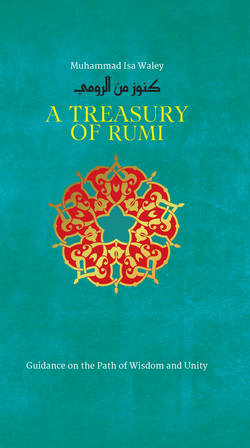Читать книгу A Treasury of Rumi's Wisdom - Muhammad Isa Waley - Страница 12
На сайте Литреса книга снята с продажи.
Оглавление3
The Human Microcosm
آدمی عظیم چیز است: در وی همه چیز مکتوب است. حجب وظلمات نمی گذارد
که او آن علم را در خود بخواند. حجب وظلمات این مشغولی های گوناگون است
وتدبیرهای گوناگون دنیا وآرزوهای گوناگون. با این همه که در ظلمات است و
مـحجوب پرده هاست، هم چیزی میخواند و از آن واقف است. بنگر که چون این
ظلمات و حجب بر خیزد، چه سان واقف گردد واز خـود چه علم هـا پیدا کند. آخـر
این حـرفتها از درزیی وبـنٌـایی ودروگـری وزرگـری وعلم نجـوم
وطـبٌ وغیره وانواع حِرَف، الی ما لا یُعَدٌ وَ لَا یُحْصَی
از اندرون آدمی پیدا شده است؛ از سنگ و کلوخ پیدا نشد. آنکه میگویند زاغی
آدمی را تعلیم کرد که مرده در گور کند، آن هم عکس آدمی بود که بر مرغ زد.
تقآضای آدمی اورا بر آن داشت. آخر حیوان جزو
آدمی است؛ جزو، کُلّ را چون آموزد؟
A human being is something vast; all things are inscribed within him. Yet veils and darknesses will not let him read the knowledge that he has inside him. The veils and darknesses are these various preoccupations, schemes, and worldly desires. Yet despite all these things being hidden in darknesses, concealed behind those veils, man is able to read something, and is aware of it. Consider how aware he becomes and what knowledge he discovers in himself when the darknesses and veils are removed. After all, trades like tailoring, building, carpentry, goldsmithing, science, astronomy, medicine, and so on – countless different trades – were discovered within mankind, not inside rocks or clods of earth. Now, it is said that a raven instructed man to bury the dead in a grave. That, too, was a reflection of human [intelligence] which came to the bird; it was an expression of human need that prompted him to do it. For animal [nature] is [merely] part of human [nature]. How could the partial teach the whole?
(FMF no. 11, 50; DOR 61–62; SOTU 52)
Towards the end of a fascinating discourse, R‰mÏ reminds us that the human soul contains universal knowledge. Despite appearances, every human being is a microcosm, a universe in miniature. The Qur’an tells us that the first man and Prophet, Adam (peace be upon him) was taught the names of all things. The name of anything, in primordial language, reflects its fundamental meaning and essential nature. Without the requisite knowledge present within them, how could the Children of Adam, at the beginning of their story, have testified to the Divine Lordship by themselves and on the basis of knowledge?
Mawl¥n¥ R‰mÏ cites the wide variety of trades and professions as examples of human knowledge and learned skills. One of the implications of this is that whatever may be the outward process involved, every kind of learning is a form of discovery (or what Greek sages called anamnēsis, ‘unforgetting’) within the soul. As enlightened educators often remark, the original meaning of ‘education’ is to bring something out. The privilege of being by fi~ra (primordial nature) homo sapiens, distinguished from other creatures by the modalities and extent of human knowledge, also carries responsibilities. God Most High swears by the human soul and its Creator that those who cultivate their souls will prosper and those who ‘bury’ them (beneath ‘darknesses and veils’) are doomed to utter failure.
